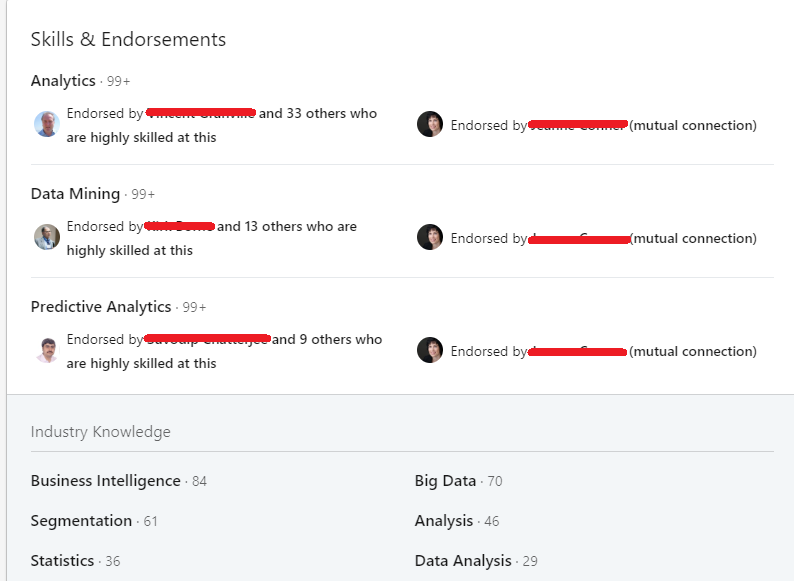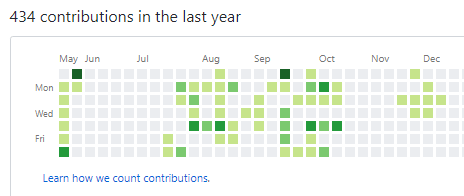‘Social Credit’ and the workforce — Is there a place for privacy?
‘Social Credit’ and the workforce — Is there a place for privacy?
It’s beginning to feel like the world that George Orwell famously penned in his classic dystopian novel, Nineteen Eighty-Four.
A world where individuals could not escape the watching eye of ‘Big Brother’, the leader of the totalitarian state, that gave rise to the use of the term in the modern day.
While we may not be entering a totalitarian rule to the magnitude Orwell imagined, there is rising concern around how much privacy we actually have, especially online.
As companies begin to monetize their content on acquired data, this reality is amplified.
This isn’t better exemplified in the west than the recent Facebook-Cambridge Analytica data scandal. Data scientist Aleksandr Kogan developed an app which was acquired by Cambridge Analytica and used to mine personal information from over 200,000 Facebook users by abusing the data capturing abilities of Facebook apps and surveys.
This personal information, along with other data obtained by the organisation was sold to political parties in an attempt to influence public opinion in the 2016 Republican primary election as well as the 2016 Brexit vote.
These are just two examples of the reality in which personal information is mined and sold to companies and people of influence to assist in their decision-making process.
Social Credit and the Government
These days the phrase ‘Social credit’ is enough to get eyes rolling — and rightfully so.
The phrase has become synonymous with the Chinese government’s new ‘Social Credit Score’ — a system which aims to assign citizens a standardised rating.
This score factors in a wide range of data, from citizens social profiles, friends, health records, internet shopping information and credit score. China has also installed more than 200 million cameras around the country with facial recognition software, allowing them to locate citizens and monitor their behaviour.

In a perfect world, this system could thrive. Everyone is placed on an even playing field, and private citizens can interact with trust based on the other’s ratings.
Some well rated individuals are even attaching their social credit score to their dating profile!
However, the rollout of this system has seen millions of residents restricted from travelling by air and train, or causing them to fall further behind on the state-mandated social ladder. Shouldn’t a system like this aim to empower people and highlight their strengths, not further exile many from society?
This potentially dystopian approach to security is also making its way to Australian shores with Darwin council officials trialing the implementation of poles ‘fitted with cameras, speakers and wifi’ throughout the city that will allow officials to ‘Know what sites people are browsing in certain areas of the city’ and set up ‘virtual fences’ to track potentially law-breaking citizens, according to Darwin council general manager for innovation Josh Sattler.
Not all citizens are treated equal — San Francisco, the tech hub of North America, announced that it has banned further use of facial recognition technology by police and other agencies due to concerns over privacy and security.
Social credit in the workforce
Whether people are willing to admit it or not, your most valuable asset is the number of people who know, like, and trust you.
We could almost call this your social credit, but for now let’s stick with “employability credit score”.
So much so, that some experts estimate that as many as 80% of new jobs are never listed, and instead filled through the company and employee’s networks. The larger your network, the larger your “employability credit score”. According to The Undercover Recruiter, 7% of all job applicants receive referrals from current company employees accounting for 40% of all new hires!
It’s clear: the more people you have willing to vouch for your skills and attitudes, the more likely you are to have success finding a new job.
If companies aren’t receiving explicit recommendations for candidates, what extra pieces of this “employability credit” are they currently searching for?
A study from Skill Survey of 1400 organisations found that 70% of companies check references for every applicant. On average, each employer checks three references from each employee — and of course, these references are usually given from candidates’ former superiors. These reference checks provide companies with a better insight into the human characteristics that can’t be communicated simply through a cover letter or resume.
But how often are they scripted and biased, from superiors the applicant had a good relationship (or even more worrying from current superiors who want to get rid of an under performing employee!), so fail to reveal negative information?
And why stop at three or four recommendations?
As the workforce and our society integrate the internet into their daily lives, new opportunities to gain insights into applicants beyond what they can currently provide during the hiring process.
A 2018 Career Builder survey found 66% of hiring managers were using search engines to conduct research on their applicants, with an even greater 70% searching for candidates on social media sites. It’s clear that employers value individuals having this online presence, with nearly half of surveyed hiring managers stating that they’re less likely to call an applicant back if they can’t find the candidate online.
However, if you’re a hiring manager, it’s important to ask what you’re actually being influenced by when viewing these profiles. Is unconscious human bias creeping in?
Is stalking Jennifer’s beach photos from her Greece vacation on Instagram really teaching you how well she gets along with her co-workers? Hiring managers should instead look to seek confirmation of the applicant’s social credit in more professional settings.
More professional sites such as LinkedIn offer employers the chance to source a range of insights that wouldn’t be possible had the search stayed within the traditional boundaries.
Below are some of the endorsements that a career Data Scientist has received on LinkedIn. These insights can paint a better picture of the applicant’s skills, as well as giving you the chance to seek out further references if need be.

If you’re hiring in the IT sector, sites like Github and Stackoverflow contribute massively to the employability credit of your applicants, allowing you to quickly and reliably analyse a candidate’s commitment to consistent improvement and their attitude to collaboration and helping others.
Below is a contribution calendar of a final-year computer science student, acting as proof that the student was committed to practicing and improving their skills alongside their studies.

Gathering Employability Credit
Taking the time to crawl the internet for proof of individual applicant’s employability credit score can be time-consuming and difficult for employers. Likewise, individual applicant’s may feel that they have online profiles and ratings that support their application, however don’t know how to convey the data without sending recruiters links to a bunch of sites they may have to jump through hoops like signing up or sending a connection request just to access.
This is why Reputationaire has developed a platform which allows recruiters to request to view an overview of applicant’s online profiles and ratings that can potentially to prove employability.
‘How is this different from China’s social credit score?’
Individual autonomy.
We live in a society where your reputation and the number of people who can vouch for your trustworthiness are your greatest asset. In a society hyper-focused on trust, a social credit score shouldn’t seek to further isolate those who are disadvantaged (such as refugees and migrants), however it should provide themselves with unique ways to leverage and communicate their reputation to the rest of the world.
Reputationaire allows candidates to select and approve the social profiles that they see fit for the application, and provide organisations with a one-click overview of these peer verified ratings.
To further their mission of being committed to individual privacy and security, Reputationaire provides employers by default only “anonymous” views of their applicant’s verified data and insights — without full and potentially personal profile content and reviews.
Reputationaire also takes advantage of the latest blockchain technology so users can guarantee the ownership of their ratings, as well as ensure that the information cannot be accessed or manipulated by third parties without their consent
Ready to get started better screening and understanding who your applicants really are with a newfound focus on privacy and security?
Contact Reputationaire today to get started.

Written by Kurt Joyce. Kurt is a marketer and copywriter based in Tasmania, Australia, specialising in organisational culture and trust.
Do you work for an organisation looking to better identify quality candidates? If so — check out Reputationaire’s services — the team would love to hear how they can help.
